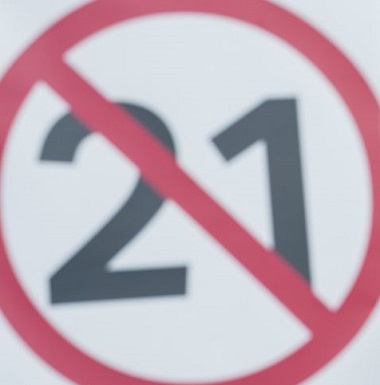 Quebec is a long way from Vancouver, but if we can muster enthusiasm for a basketball team in Toronto then we should be able to take note of serious threats to religious freedom in la belle province.
Quebec is a long way from Vancouver, but if we can muster enthusiasm for a basketball team in Toronto then we should be able to take note of serious threats to religious freedom in la belle province.
Working throughout the night last weekend, Quebec’s National Assembly passed the CAQ government’s Bill 21. This legislation is particularly bad news for Muslims, Sikhs, Jews – and no doubt some Christians – who wear outward symbols of their religion and hold public government jobs. But it is bad news for all of us, as Quebec is part of Canada.
Fortunately, we have some national groups which are keeping a close eye on the situation, and offering valuable commentary. Here are a couple worth checking out further:
Cardus Religious Freedom Institute

Andrew Bennett is director of CRFI.
Here is the email which the director of the Cardus Religious Freedom Institute (CRFI), Andrew Bennett, sent out June 18:
The consequences of this landmark piece of legislation are far-reaching. The new law represents the closing of the public square to Quebec public servants who desire to live a genuine public faith as protected through our fundamental right as human persons to religious freedom.
For those who have not been following the debate, the new law restricts public sector workers – teachers, Crown prosecutors, police officers, municipal employees, etc. – from wearing outward expressions of faith. Muslim hijabs, Sikh turbans, Jewish kippot and Christian crosses are out, enforced secularism is in.
Not only does this legislation incorporate the ‘notwithstanding clause’ (s. 33 of the Canadian Charter of Rights and Freedoms) in an effort to avoid legal challenges on the basis of the law violating freedom of conscience and religion, it also amends Quebec’s own Charter of Rights. As a number of Quebec lawyers have argued, such an act is without precedent in the constitutional history of Quebec.
This legislation is a grave affront to freedom of conscience and religion and to freedom of expression. It limits Quebeckers’ ability to engage in public life with their fullest selves. It marginalizes people of religious faith and inhibits the fostering of a deep pluralism where difference is respected. Click here to read my full statement.
All Canadians, both in Quebec and across Canada, should raise their voices to sound the alarm on the occasion of this constraining of religious freedom.
Go here for links to several valuable CRFI research reports on the relationship between religion and law.
Christian Legal Fellowship
Derek Ross and Robert Reynolds – executive director and past president of the board respectively of the Christian Legal Fellowship (CLF) – wrote ‘Controversial Bill 21 demands irreligious uniformity, opposite of neutrality’ in The Lawyer’s Daily June 14, in anticipation of the bill’s passage.
Here is a portion of the article:
For many believers, religious symbols are not a matter of choice but an essential act of worship and religious expression, compelled by sincerely and deeply held convictions. Bill 21 forces those believers to choose between their faith and their jobs. That is not a true choice at all. Rather, it is an effective ban from public employment.
Thus, while the legislation purports to be advancing religious neutrality, it is promoting the exact opposite: a public square which is hostile, not neutral, toward religion. This is unacceptable in a free and democratic society.
As others have observed, the invocation of the notwithstanding clause does not render this approach any less offensive, nor assure the bill’s legality. The Charter is neither the source of nor basis for fundamental rights – it affirms and recognizes them and commits Canada’s governments to respect and protect them. But there are anterior and higher sources of truth and rights than those found in the Charter – this is affirmed in the Charter’s preamble itself, and in Canadian jurisprudence.
Religious freedom in Quebec and the rest of Canada was recognized long before the Charter. As Supreme Court Justice Ivan Rand declared in Saumur v. Quebec (City) [1953] 2 S.C.R. 299, freedom of religion is one of the “original freedoms which are at once the necessary attributes and modes of self-expression of human beings and the primary conditions of their community life within a legal order.”
Go here for the full article. The CLF had already submitted a legal brief to the National Assembly of Quebec (Committee of Institutions) May 14 regarding Bill 21.
I have no doubt that the Evangelical Fellowship of Canada and the Canadian Conference of Catholic Bishops will release statements soon. The EFC released a comment opposing Bill 21 April 9.
Andrew Coyne wrote a very helpful comment in The National Post: ‘Will leaders tolerate religious segregation just because it’s Quebec?’ Pointing out that the new law will weigh most heavily on observant Muslims, he said:
We have to avoid the temptation to abstraction. This is not merely an “intrusion on religious freedom” or “incompatible with religious equality” or “a misunderstanding of religious neutrality.” It is a religious hiring bar. Its effect, if not its aim, is to enforce a kind of segregation over much of the public sector.
Go here for the full article.

When is enough? If it was my decision, I would absolutely not allow face-covering for anyone in the public sector being paid to provide a service, (even 7-11 and banks require being able to see ones face,) but freedom of religion is one of the founding principles of our society. (Seems to me the guillotine was often used during the French Revolution, so is the government going to bring that back as well? If that’s the case, maybe it’s time for another one.)